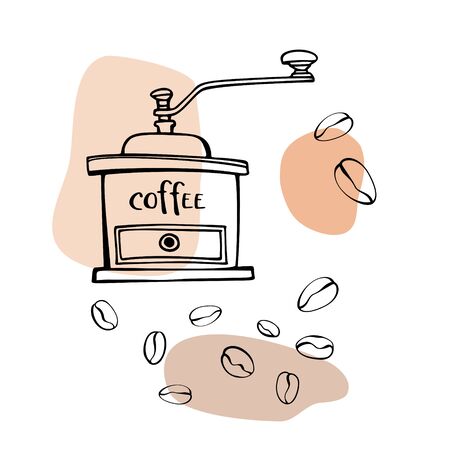Introduction to Northern Grit and Coffee Culture
When discussing the vibrant tapestry of British culture, few regions are as proudly distinct as northern England. The term Northern Grit is more than just a catchy phrase; it encapsulates the resilience, determination, and unpretentious spirit that defines communities across cities like Manchester, Leeds, Sheffield, and Newcastle. This sense of grit is woven into daily life, shaping everything from dialect to social customs—and nowhere is it more evident than in the regions evolving coffee culture. While coffee has become a global phenomenon, the North of England brings its own flavour to the table, blending traditional values with contemporary café trends. Community hubs rather than mere caffeine stops, northern coffee shops pulse with local character, offering a warm welcome that reflects both the hospitality and hardiness intrinsic to Northern identity. In this article, we delve into how Northern grit influences the way people up North approach their brews and banter, setting them apart from their southern counterparts and creating a coffee scene as rich in personality as it is in flavour.
2. Historical Roots: Coffee’s Rise in the North
Northern England’s coffee culture is deeply rooted in its industrial past, a legacy that sets it apart from the more cosmopolitan traditions of London or the South. The North has long been synonymous with hard work and resilience—qualities often summed up by the phrase “Northern grit.” During the Industrial Revolution, bustling cities like Manchester, Leeds, and Sheffield became global powerhouses, drawing workers from across the country. Traditionally, these communities were staunch tea drinkers, finding comfort in a “brew” during harsh shifts in factories and mills.
Industrial Influence on Coffee Adoption
As industry flourished, so did international trade. Ports such as Liverpool began importing exotic goods, including coffee beans. Coffee houses started springing up alongside textile mills and coal mines, gradually making inroads into the working-class palate. Initially seen as a sophisticated southern habit, coffee slowly gained traction among Northerners seeking warmth and stimulation during long, cold working days.
Evolution from Tea to Coffee
| Period | Beverage of Choice | Cultural Context |
|---|---|---|
| Pre-Industrial Era | Tea | Tea was affordable, communal, and embedded in daily rituals. |
| Industrial Revolution | Tea (dominant), Coffee (emerging) | Tea remained prevalent; coffee introduced via trade and urbanisation. |
| Late 20th Century | Coffee (growing), Tea (traditional) | Coffee shops proliferated; youth embraced espresso culture. |
| Modern Day | Coffee (mainstream), Specialty Coffee | Northern cities now boast independent roasters and unique café scenes. |
Northern Identity in Every Cup
The journey from tea to coffee in the North reflects not just changing tastes but also a resilient regional identity. Northern cafés often retain elements of their industrial heritage—exposed brickwork, reclaimed wood, and no-nonsense service—while fostering community spirit. Unlike southern counterparts, northern establishments blend tradition with innovation, resulting in a vibrant coffee scene where local slang (“fancy a cuppa?”) meets specialty brews. This fusion of old and new typifies the Northern approach: practical yet progressive, unpretentious but always evolving.

3. Distinctive Northern Cafés: More Than Flat Whites
While the southern coffee scene often draws inspiration from continental trends and minimalist aesthetics, northern cafés have carved out a unique identity rooted in local character, warmth, and a sense of community. Step into an independent coffee shop in Manchester, Leeds, or Newcastle, and you’ll immediately notice the difference—there’s a distinct lack of pretension, replaced instead by hearty welcomes and an inclusive atmosphere. These aren’t just places to grab a quick espresso; they’re social hubs where neighbours catch up over a brew, students pore over textbooks, and local artists display their work.
Local Independents Over Chains
Northern cities pride themselves on supporting independent businesses, which is reflected in the proliferation of family-run cafés and micro-roasteries. While large chains are present, they rarely define the scene. Instead, locals gravitate towards spots that showcase regional produce—think Yorkshire rhubarb cakes or Lancashire cheese scones—and beans roasted just down the road. There’s a spirit of collaboration too: many cafés host pop-ups for bakers, brewers, and community events that strengthen local ties.
Atmosphere: Warmth and Wit
The ambience in northern coffee shops is unmistakably different from their southern counterparts. Interiors are often cosy rather than clinical, with mismatched furniture, locally inspired artwork, and blackboards scrawled with witty northern phrases (“Ey up! Fancy a proper brew?”). Staff are quick to chat—often peppering conversation with regional slang—and regulars are remembered by name. The vibe encourages lingering; it’s not unusual to see groups huddled around tables long after their cups are empty.
Regional Twists on Classic Drinks
Forget the standard flat white or caramel macchiato—northern menus frequently feature playful riffs on classics. In Sheffield or Liverpool, you might find oatcake lattes or parkin-spiced cappuccinos during autumn. Some cafés offer “builders’ brews” (strong black tea) alongside specialty coffees to cater to all tastes. Even names get a local spin: expect to hear requests for a “milky” (white coffee) or “caff” (café), especially among older generations. Ultimately, these details reflect northern grit—a blend of resilience, humour, and authenticity—that makes each visit memorable and distinctly northern.
4. Slang and Social Nuances: Ordering Coffee Up North
The North of England is renowned for its distinct dialects, wit, and a sense of camaraderie that’s woven into everyday interactions—including those at your local café. When it comes to ordering coffee up North, the experience is shaped as much by local slang and colloquial banter as by the choice of beans or brewing method. Let’s delve into how northern English expressions colour café culture, and how ordering a brew in Newcastle might diverge from Manchester or Leeds.
Northern Café Slang: A Regional Lexicon
Each major northern city brings its own flavour to coffee shop chat. For instance, where someone in London might simply ask for a “flat white,” in Newcastle you could hear, “Can I get a white coffee with a splash, pet?” In Leeds, the request might be more direct—“Just a milky one, ta.” The table below highlights some common terms and phrases across Newcastle, Manchester, and Leeds:
| City | Common Phrase | Meaning |
|---|---|---|
| Newcastle | Brew with a splash, pet | Coffee with a little milk, addressed endearingly |
| Manchester | Fancy a cuppa? | An invitation for coffee or tea, informal tone |
| Leeds | Milky one, ta | Coffee with plenty of milk; “ta” means thank you |
Social Nuances: More Than Just the Brew
Up North, ordering coffee is seldom just about the drink; it’s a social ritual. Baristas are likely to greet customers with familiar terms like “love,” “pet,” or “duck,” creating an atmosphere that feels both personal and communal. It’s not uncommon to share a brief chat about the weather or last night’s match before placing your order. This warmth contrasts with the sometimes brisk efficiency found further south.
Navigating Local Customs in Northern Cafés
- Expect Informality: Don’t be surprised if the barista throws in a term of endearment—it’s all part of the northern charm.
- Banter Welcomed: Light-hearted exchanges are encouraged; having ‘the craic’ (good conversation) is almost as important as the coffee itself.
- Straightforward Orders: Northerners often keep things simple—‘black,’ ‘white,’ or ‘milky’ are standard requests.
The Takeaway for Coffee Lovers
If you’re travelling through Newcastle, Manchester or Leeds, embracing these regional quirks will enrich your café experience. Whether you’re after a strong espresso or just “a brew with a splash,” understanding the local slang helps you connect—and maybe even make a new friend over your next cup.
5. Community Spirit: The Role of Coffee in Northern Life
In the North of England, coffee is far more than a morning pick-me-up—it’s woven into the very fabric of local communities. Unlike the often fast-paced grab-and-go culture found in southern cities, northern cafés have evolved as genuine social hubs, echoing the region’s storied sense of camaraderie and resilience. These spaces are not just about sipping a flat white; they’re vibrant gathering points where neighbours catch up, local artists display their work, and community groups convene over steaming mugs of Yorkshire-roasted beans.
The northern spirit—often dubbed “Northern grit”—thrives on connection and inclusivity. Independent coffee shops play a key role by creating welcoming environments that break down social barriers. Whether you’re a lifelong local or a new arrival, stepping into a café in Manchester, Leeds or Newcastle usually means a friendly nod and a bit of banter from the staff. In these settings, it’s common to hear regional slang such as “ey up”, “how’s tricks?”, or “fancy a brew?”, all of which reinforce a feeling of belonging and shared identity.
Cafés also foster local pride by championing northern produce and highlighting regional coffee roasters on their menus. Many establishments offer community noticeboards featuring everything from charity events to gigs at the local pub, reinforcing their role as grassroots information centres. It’s not unusual for cafés to host open mic nights, book clubs, or even knitting circles—each event strengthening bonds between residents and celebrating what makes northern life unique.
This emphasis on community is visible in how these venues support social causes and offer safe spaces for people from all walks of life. Whether providing ‘suspended coffees’ for those in need or working with local charities, northern coffee shops embody a collective ethos that extends well beyond caffeine consumption. In essence, they serve as microcosms of northern values: resilient, inclusive, and always up for a good chinwag.
6. The Northern Approach to Sustainability and Sourcing
One of the defining features of northern coffee culture is its unwavering commitment to sustainability and ethical sourcing. While coffee scenes across the UK are evolving, northern roasteries and cafés have carved out a reputation for their technical rigour and ethical backbone, setting themselves apart from their southern counterparts in both philosophy and practice.
Traceability: More Than Just a Buzzword
Northern roasters take traceability seriously, often going above and beyond industry standards to ensure every beans journey is transparent. From direct trade relationships with farmers to detailed documentation on origin, altitude, processing methods, and harvest dates, there’s a technical depth here that reflects northern straightforwardness—no smoke and mirrors, just honest coffee with a clear lineage.
Sustainable Sourcing: Balancing Quality and Responsibility
The pursuit of sustainability goes hand-in-hand with quality up north. Many independent roasteries opt for organic or Rainforest Alliance certified beans, but the focus extends further—supporting regenerative agriculture, reducing carbon footprints, and investing in long-term partnerships that benefit farming communities. This technical approach ensures that sustainability isn’t just marketing jargon; it’s woven into the DNA of every cup.
Local Suppliers: Keeping It Close to Home
Supporting local is not merely a trend in northern England—it’s a deeply ingrained value. Cafés and roasteries source milk from nearby dairies, pastries from local bakeries, and even furniture from regional craftspeople. This keeps money circulating within the community while reducing transport emissions—a win-win that exemplifies the “northern grit” approach to ethical business.
Technical Excellence Meets Community Spirit
The northern commitment to sustainability is as much about technical excellence as it is about supporting people—both locally and globally. Whether you’re sipping a flat white in Leeds or an espresso in Manchester, you’ll find transparency on sourcing boards, knowledgeable baristas ready to discuss farm-to-cup journeys, and a sense of pride in doing things right. In the north, sustainable coffee isn’t an aspiration—it’s a standard.
7. Conclusion: Brewing Identity—North vs South
Reflecting on the distinctive coffee culture and language of northern England, it becomes clear that the North’s identity is brewed from more than just beans and slang. The region’s resilience—born from its industrial past and proud working-class roots—permeates every bustling café and friendly exchange over a flat white or mug of builder’s tea. Northern hospitality isn’t just a stereotype; it’s woven into the very fabric of local coffee shops, where banter flows as freely as the espresso, and every customer is greeted like an old mate. The unique slang heard in these spaces is not merely colourful vocabulary but a badge of belonging, reinforcing community ties and setting northerners apart from their southern counterparts. While London may boast cosmopolitan trends and artisanal pours, up North it’s about warmth, authenticity, and a strong sense of place. Coffee culture here cements regional pride, blending resilience with genuine welcome—proving that, whether you’re after a proper brew or just some cracking craic, the North has carved out its own rich identity in every cup.

